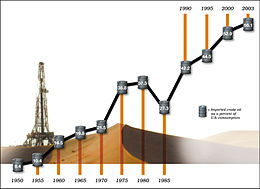Biofuels: a sustainable alternative
Biofuels represent a sustainable alternative to traditional fossil fuels. They are produced from renewable raw materials, such as plants and organic waste, thus reducing our dependence on non-renewable energy sources.
Biofuels can be categorized into two main types:
- First-generation biofuels: made from food crops like corn, wheat, and sugarcane. These fuels mainly include ethanol and biodiesel.
- Second-generation biofuels: produced from non-food materials such as wood waste, agricultural residues, and algae. They avoid competition with food crops.
One of the major advantages of biofuels is their reduced impact on greenhouse gas emissions compared to fossil fuels. By using renewable sources, they generate less CO2 when burned.
Biofuels also promote local economies by creating jobs in agriculture and renewable fuel production. They further encourage more sustainable management of natural resources.
To ensure the viability of biofuels, it is crucial to promote sustainable agricultural practices and develop advanced production technologies. Investment in research and innovation will help overcome challenges related to production, such as the ecological footprint of energy crops and competition with food crops.
The different types of biofuels
Biofuels represent a credible and eco-friendly alternative to fossil fuels. Derived from biomass, these renewable energy sources are divided into several categories based on their origin and production.
Biofuels are mainly classified into two generations. The first generation is produced from food crops such as corn, sugarcane, and vegetable oils. The second generation uses non-edible raw materials, such as agricultural residues, wood, and organic waste. The latter offers the advantage of not competing with food resources, which is a significant gain for sustainability.
Several types of biofuels can be distinguished:
- Bioethanol: Primarily produced from sugar-rich crops like sugarcane or starch-rich crops like corn. It is often used as an additive to gasoline to improve combustion.
- Biodiesel: Made from vegetable oils or animal fats. It can be used pure or blended with conventional diesel.
- Biogas: Derived from the anaerobic fermentation of biomass, it is primarily composed of methane and can be used for electricity production or as fuel for vehicles.
- Pure vegetable oils: Used directly as fuel, particularly in adapted diesel engines.
- Advanced biofuels: Such as cellulosic fuel, obtained from lignocellulosic materials, or algal biofuels, derived from algae crops.
The environmental impact of biofuels
Biofuels present themselves as a promising alternative to traditional fossil fuels. Made from organic materials, they have the potential to reduce our carbon footprint while providing a renewable energy source.
Biofuels are generally classified into two broad categories: first-generation biofuels and second-generation biofuels. The former are produced from food crops like corn or sugarcane. The latter are made from lignocellulosic materials, meaning non-food plant waste.
These biofuels offer several advantages:
- Reduction of greenhouse gas emissions
- Decrease in dependence on fossil fuels
- Valuation of organic waste
However, their environmental benefits can vary depending on production methods and the raw materials used. It is crucial to choose sustainable agricultural practices and prioritize second-generation biofuels to minimize negative impacts.
In terms of environmental impact, biofuels present a mixed profile. On one hand, they contribute to reducing CO2 emissions, thus aiding in the fight against climate change. On the other hand, intensive cultivation of certain raw materials can lead to issues such as deforestation, biodiversity loss, and increased water resource use.
To maximize the environmental benefits of biofuels, it is essential to:
- Favor non-food crops
- Optimize processing methods
- Encourage technological innovations
By integrating these solutions, biofuels can truly become a sustainable alternative, reducing our ecological impact while supporting the development of renewable energies.
Articles similaires
Thank you!
We will contact you soon.













